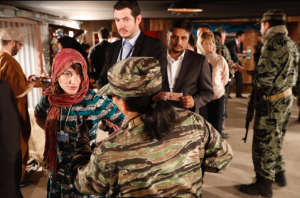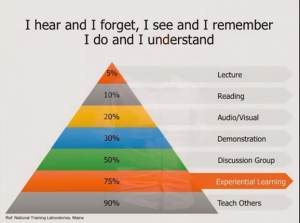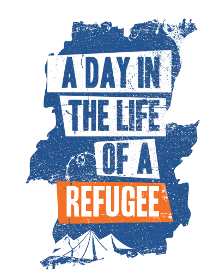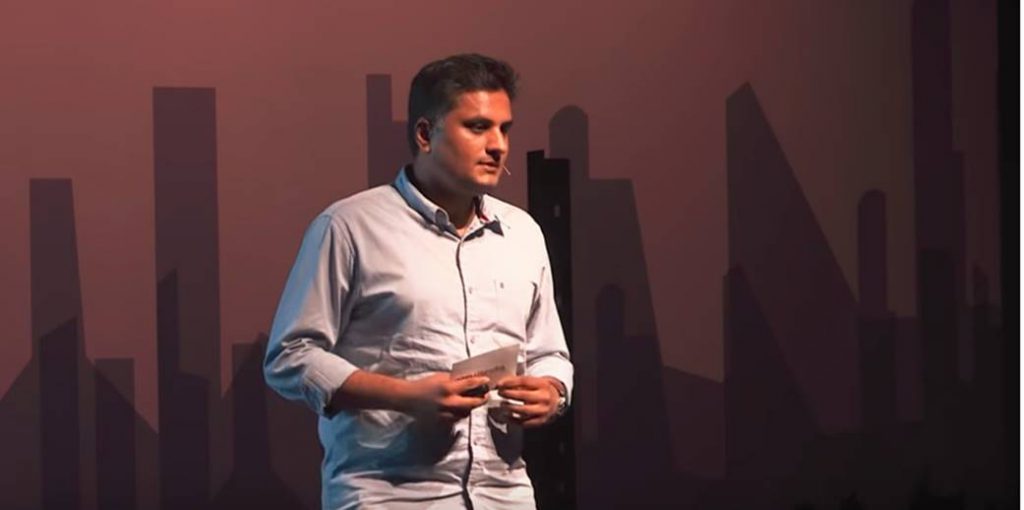Vaibhav Lodha, co-founder, ftcash, described the simulation as ‘the most impactful session for me at the Annual Meeting at Davos in 2017’. He went on to talk about the power of experiential learning in a TEDx talk in India.
I was at the Annual Meeting of World Economic Forum at Davos in 2017 and the Crossroads Foundation organized a simulation called – ‘A Day in the Life of a Refugee’. Pardon my ignorance but coming from a developing world myself in India, my entire source of information about refugees prior to this simulation was the internet and the tweets of President of the United States.
Brene Brown in her research says that “Stories are just Data with a Soul”. And I believe we are the collective of every story in our lives. We are the books we read, the films we watch, the music we to listen to, the people we meet, the dreams we have, the conversations we engage in. We are what we take from these and the moments that we create out of these experiences. The refugee simulation at Davos was that moment for me.

Vaibhav Lhoda participating in ‘A Day in the Life of a Refugee’
After strong recommendations, I went to the simulation which starts with the main lead outside the camp explaining what we can potentially experience inside. Everyone receives a new identity, a role, and a family. But before the families have time to find each other, an alarming announcement is made and home isn’t safe anymore. Everyone must run – under heavy fire and with just their identity cards and with luck, a little bit of money.
A hail of bullets and screams accompany the escape, away from the city and across the border into a refugee camp. Here, the psychological terror begins. Men and women are distributed haphazardly in tents. Soldiers shout their orders all the time: “Sleep! Get out of the tent! Why are you making trouble, you’re supposed to be asleep!” But no one can sleep. Someone’s dragged out of the tent, shots are heard. Lining up, again and again. Please, threats, confusion. The quiet moments don’t bring any peace.

Vaibhav used this graphic during his TEDx talk, to demonstrate the impact of experiential learning.
There’s a school, but it’s of little help because the teacher doesn’t speak the same language. Food only comes in exchange for bribes – a watch, a cellphone, and a wedding ring – which is worth a small bowl of water. The doctor is supposed to have medicine. But in her tent, there are only random body parts. A soldier, also supposed to have medicine, isn’t about to settle for money or goods. “Do you have a daughter?” he asks the 45-year old farmer, my character in this simulation. He’s not interested in the answer. “Bring me your daughter tomorrow, then you’ll get medicine.” This loss of control, uncertainty through aggression and violence, and plain fear still has me reeling from the 45-minute simulation of what some refugees have gone through for more than 2 decades.
Experiences give us perspective. The new experiences not only seem to slow down the perception of time, keep life real and more importantly, they seem to prevent us from being stuck in the ways that we think. At the end of the simulation 3 refugees who also are actors in the simulation share their stories of living in the camps. I still can’t hold my tears often thinking of their lives. These feelings would have never been possible for any amount of reading articles or videos.
Below: Vaibhav presenting his TEDx talk


